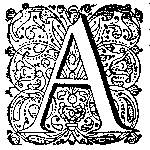Introduction: Divided by Death? Staging Mortality in the Early Modern Low Countries
DOI:
https://doi.org/10.51750/emlc10005Keywords:
death, historical anthropology, Dutch Revolt, religious warAbstract
This special issue examines the multifaceted phenomenon of death in the early modern Low Countries. When war, revolt, and disease ravaged the Netherlands, the experience of death came to be increasingly materialised in vanitas art, funeral sermons, ars moriendi prints, mourning poetry, deathbed psalms, memento mori pendants, grave monuments, épitaphiers, and commemoration masses. This collection of interdisciplinary essays brings historical, art historical, and literary perspectives to bear on the complex cultural and anthropological dimensions of death in past societies. It argues that the sensing and staging of mortality reconfigured confessional and political repertoires, alternately making and breaking communities in the delta of Rhine, Meuse, and Scheldt. As such, death’s ‘omnipresence’ within the context of ongoing war and religious polarization contributed to the confessional and political reconfiguration of the early modern Low Countries.
Downloads

Published
Issue
Section
License
Copyright (c) 2021 Isabel Casteels, Louise Deschryver, Violet Soen

This work is licensed under a Creative Commons Attribution-NonCommercial 4.0 International License.





